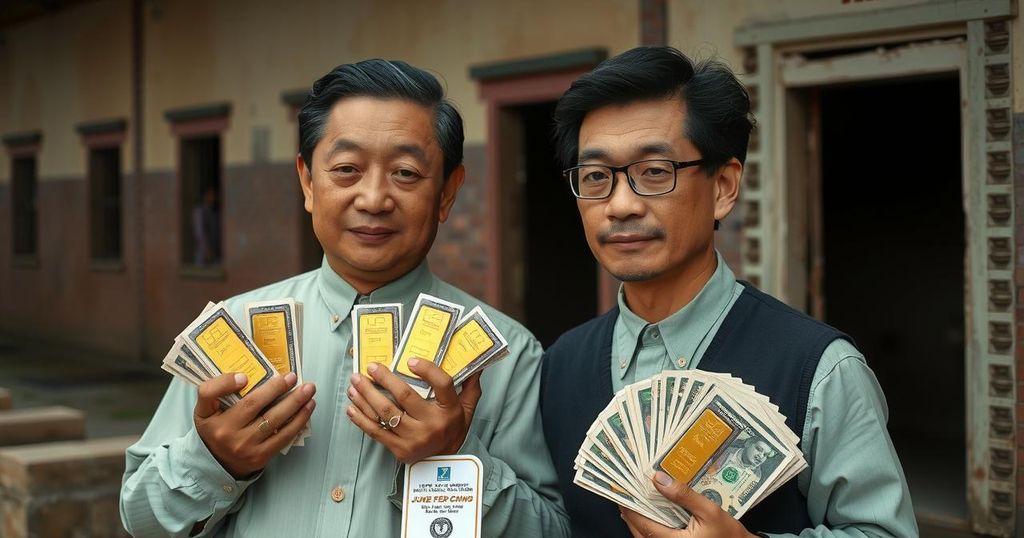Three Chinese nationals were arrested in eastern DR Congo with $800,000 and 12 gold bars hidden in their vehicle. This follows the controversial release of another group of Chinese accused of running an illegal mine. The region, rich in minerals, suffers from exploitation by foreign groups and ongoing militia conflicts, complicating local governance and reform efforts.
In a significant operation in eastern Democratic Republic of Congo, authorities have arrested three Chinese nationals found in possession of 12 gold bars and $800,000 in cash. The governor of South Kivu province, Jean Jacques Purusi, indicated that the valuables were concealed beneath the vehicle’s seats. The secrecy surrounding the arrest stemmed from the recent release of another group of Chinese arrestees tied to illegal gold mining activities, which has complicated efforts to address the corruption within the mineral sector.
Eastern DR Congo is known for its rich deposits of gold, diamonds, and various minerals crucial for modern technology, including electric vehicles. Unfortunately, this mineral wealth has been subject to exploitation by foreign entities, contributing to a cycle of instability that has plagued the region for decades. Various militia groups dominate the mining operations, with some links to influential individuals in the capital, Kinshasa, exacerbating the situation.
The arrest followed a tip-off and required a thorough search, resulting in the discovery of the concealed gold and cash in the Walungu area, close to the Rwandan border. Last month, there was astonishment expressed by Governor Purusi regarding the release of 17 Chinese nationals accused of managing an illegal mine, which undermined the government’s attempts to reform the mineral industry. These individuals allegedly owed the Congolese government $10 million in taxes and fines, as reported by Reuters.
The Chinese embassy has yet to issue a statement regarding these recent allegations. This incident occurs amidst ongoing conflicts in North Kivu province, where rebel factions, allegedly backed by Rwanda, continue to seize control of territories. Furthermore, DR Congo has taken legal action against Apple, accusing the tech company of utilizing “blood minerals” sourced from conflict zones, prompting a transition away from suppliers in both DR Congo and Rwanda, which Rwanda has denied.
Lawyers representing the Congolese government argue that these minerals are laundered through global supply chains, exacerbating violence, financing militia activities, and contributing to widespread human rights violations and environmental harm.
The Democratic Republic of Congo, endowed with vast mineral resources, has faced significant challenges related to the exploitation of its wealth since the days of colonial rule. The eastern region, in particular, is rife with conflict as various militia groups have seized control of mining operations, often engaging in illegal activities. Corruption has also plagued the mineral sector, making it difficult for the government to enforce regulations and collect owed revenues. The recent arrests highlight ongoing efforts by local authorities to combat illegal mining practices and restore order.
The arrests of the three Chinese nationals in DR Congo underscore the ongoing battle against illegal mining and the complexities linked to foreign exploitation of the country’s vast mineral resources. This incident reveals deeper issues of corruption and instability within the region, further complicated by external influences and local militia groups. As the Congolese government continues to address these challenges, the need for systemic reform and international cooperation remains essential to achieving sustainable peace and stability in the region.
Original Source: www.bbc.com







